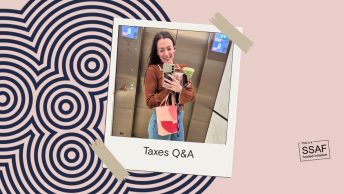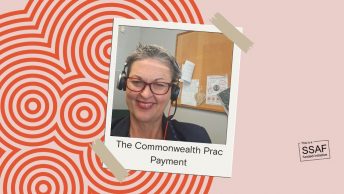This post is over three years old, the information may be outdated.
Attending university can be an expensive exercise. Thankfully in Australia, we have access to a number of student loans to help pay for tertiary education.
The most common loan you may have heard of is HECS-HELP, formerly known as HECS. This stands for Higher Education Contribution Scheme as part of the Higher Education Loan Program.
Understanding HECS-HELP loans can be difficult. Essentially, the Australian (Commonwealth) Government offers financial assistance to eligible students, but let’s break this down further.
To understand HECS-HELP you first need to understand Commonwealth Supported Places.
What is a Commonwealth Supported Place (CSP) and who is eligible?
The majority of students undertaking undergraduate studies are in fact enrolled in a Commonwealth Supported Place. Australian citizens, New Zealand citizens and permanent visa holders may be eligible for a CSP.
If you are eligible for enrolment in a CSP, this means that the Australian Government will pay the University directly, to cover a proportion of your subject fees. You, as the student, must pay the remainder. This is known as your “student contribution”.
You can choose to pay your student contribution as you study, by paying your subject fees upfront each session. Find out how much your subjects will cost upfront with the CSP subsidy applied.
Or, you can choose to pay for your student contribution via HECS-HELP.
Please note that permanent visa holders and New Zealand Residents may be offered a CSP. Permanent visa holders are not eligible for HECS-HELP assistance and are required to pay their student contribution upfront to the university by census date.
Some New Zealand residents might be eligible for HECS-HELP. If you think you might be eligible, you should nominate to pay your fees via HECS-HELP. A member of Charles Sturt staff will then contact you to request documents that show you meet the residency requirements. They will then assess if you are eligible or not.
eCAF’s and why you have to nominate how you’ll pay
All students studying in a CSP must fill in their eCAF. eCAF stands for electronic Commonwealth Assistance Form (eCAF) and it tells Charles Sturt and the Australian Government whether you’d like to pay for your student contribution upfront or defer it via HECS-HELP.
You must complete your eCAF before census date of your first session of study. Students only have to fill in this form ONCE during their course. That means, if you transfer into a new course you will have to submit your eCAF again.
You will need a Tax File Number (TFN) to successfully complete your eCAF. For detailed instructions see How to submit your eCAF.
What happens if I don’t submit my eCAF?
If you do not fill in the eCAF form, the Australian Government will ask Charles Sturt University to remove you from your CSP (remember, the Australian Government has subsidised your spot)! At this point in time, you can re-enrol in your subjects, but you would have forgone your CSP, so you will have to pay your subject fees in full, as a full-fee paying student.
In the next session of study, if you are eligible, you are allowed to enrol for a CSP again. However, if you then do not fill in the eCAF form again (two consecutive sessions of study), you will be removed from your course entirely. Once you have been removed entirely, you will have to apply to study at Charles Sturt all over again.
So it is very important to fill in your eCAF form! Don’t worry, Charles Sturt send you lots of emails to let you know how to fill in your eCAF form and your checkpoints in your student portal will also notify you to do this when you start studying.
HECS-HELP
When you apply for HECS-HELP, you are applying for an interest-free loan from the Australian Taxation Office (ATO). When you do so, the ATO will pay your student contribution directly to the university (remember, that’s the remainder of your subject fees). You do not have to start paying off your HECS-HELP until you earn enough income to start paying back the ATO.
In summary, the Australian Government pays some of your subject fees, and the ATO will pay the rest. So long as you’re eligible for a CSP and HECS-HELP, you have the option to study now and pay later! All you have to do is fill in your eCAF.










